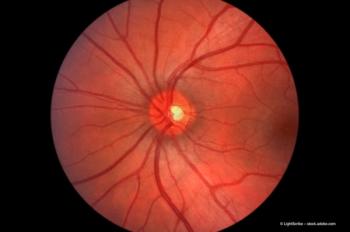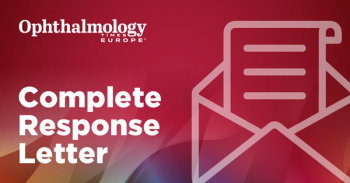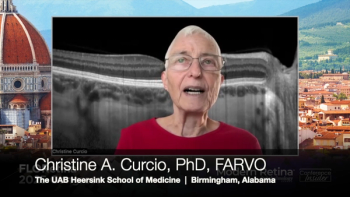
Voclosporin: safe, eddective for noninfectious uveitis
Investigational agent shown to be superior to placebo in two historic multicentre studies
The investigational drug voclosporin (Luveniq, Lux Biosciences) has shown positive effects compared with the placebo in the management of uveitis in pivotal phase III clinical trials as an oral corticosteroid-sparing drug in patients with clinically quiescent noninfectious uveitis as well as in patients with active noninfectious intermediate, posterior, or panuveitis.
Dr Quan Dong Nguyen reviewed the results of the LX211-01 study for treating active posterior noninfectious uveitis, and Dr Bahram Bodaghi highlighted the results for the LX211-02 study of the LUMINATE clinical programme for treating clinically quiescent uveitis at the 2009 annual meeting of the American Academy of Ophthalmology.
The studies of the efficacy of a therapy for uveitis, together known as the LUMINATE (LX211 Uveitis Multicentre Investigation of a New Approach to TrEatment) trials, overall, were the largest undertaken to date in the field of ocular inflammation and uveitis. They included 557 patients in three studies, LX211-01, LX211-02, and LX211-03. LX211-01 included 217 patients with active uveitis that had an intermediate, posterior, or pan-manifestation; LX211-02 included 232 patients with clinically quiescent uveitis; and LX211-03 included 108 patients with active anterior disease.
The LUMINATE programme consisted of three multicentre trials carried out in the United States, Europe and India.
LX211-01 study
In the LX211-01 study, patients with intermediate, posterior, or panuveitis were randomly assigned to one of three doses of the drug: 0.2 (64 patients), 0.4 (64 patients), or 0.6 (61 patients) mg/kg twice daily or to the placebo (28 patients).
The primary endpoint was the mean change in vitreous haze at 16 and 24 weeks and the secondary endpoint was the change in the VA, according to Dr Nguyen, associate professor of ophthalmology for diseases of the retina, vitreous and uveitis at the Wilmer Eye Institute, Johns Hopkins University School of Medicine, Baltimore, Maryland, USA.
A total of 217 patients were included in the study. The patients continued taking steroids for 4 weeks and then the dose was tapered. The doses of steroids among the patients ranged from 18–28 mg daily. At baseline the grading of vitreous haze was a mean of 2+ based on established standardization of uveitis nomenclature criteria.
The 0.4 mg/kg dose was found to be the most effective as well as the dose with the best safety profile, including the least changes in hypertension and renal function. At weeks 16 and 24 of treatment, there was a significant decrease in vitreous haze (p=0.008 and p=0.027, respectively). No significant difference was found in the decrease in vitreous haze between the 0.4 and the 0.6 mg/kg doses.
"The decrease in haze with those two doses was significant compared with baseline," Dr Nguyen said. "The effect of voclosporin is rapid, robust and sustained."
The secondary endpoint, preservation of VA, showed that the VA was preserved. The patients' sight was rescued before there was a significant loss of vision; about 40% of patients had 20/40 or better at the time of enrolement into the study. VA improved with treatment, but the improvement was slow.
"Voclosporin has a promising safety profile and fewer side effects compared with other calcineurin inhibitors," Dr Nguyen said.
Three percent of patients had a serious adverse event. The investigators identified a dose-related decline in renal function that was reversible with discontinuation of treatment.
The LUMINATE programme brings historic moments to uveitis and ocular inflammatory diseases because it is composed of the first international, multicentre, placebo-controlled studies for a pharmacologic therapeutic agent in the field.
"Voclosporin may fulfil a major unmet need in the management of uveitis," he concluded.
Newsletter
Get the essential updates shaping the future of pharma manufacturing and compliance—subscribe today to Pharmaceutical Technology and never miss a breakthrough.




























